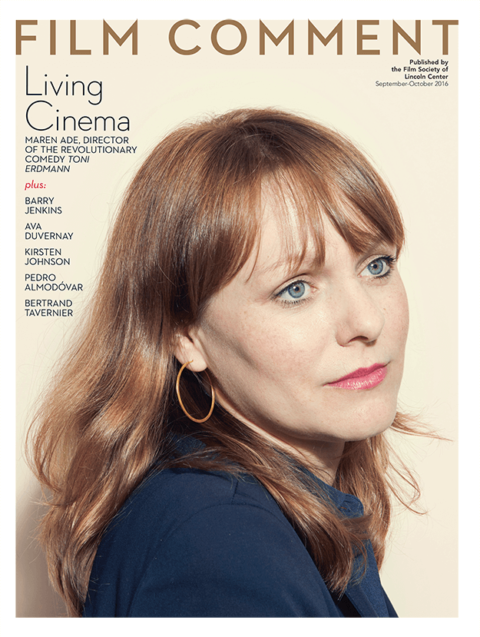
Staying In
Of course Terence Davies’s first film based on the life of a historical figure would take as its subject someone who once began a poem: “I’m Nobody! Who are you?” Far from a conventional biopic, Davies’s marvelous film about the life and death of Emily Dickinson (Cynthia Nixon) takes great care never to overplay the brilliance of its subject, taking her genius as a given. Her poems, unpublished during her lifetime, occasionally float across the soundtrack, premonitions of a posthumous career, recited by Nixon with an internalized wisdom.

The actor’s remarkable even in voiceover, but on-screen she’s revelatory, her soft features made severe as she calcifies from independent-minded freethinker into lonely, bitter middle age, shutting herself off from the world in her family home in Amherst, Massachusetts. In concert, the film burrows in ever tighter, dramatically reflecting Dickinson’s journey into shadows, a progression that feels especially perturbing after Davies’s atypically breezy first half, which offers a rare showcase for the trademark wit (“Going to church is like going to Boston; you only enjoy it after you’ve gone home”) the writer-director usually flashes only behind the camera.
As razor-sharp verbal alacrity is permanently dulled by emotional dissolution, A Quiet Passion reveals itself to be a work of nearly Bergman-esque despair, reminiscent of Cries and Whispers in its exquisitely wrought claustrophobia and the unblinking clarity with which it peers at human fragility. Admirers of Davies’s aching slow pans and painterly lighting will not be disappointed by the way he and cinematographer Florian Hoffmeister make Dickinson’s New England house look like the provincial interior of a Dutch master. Davies has fully embraced digital filmmaking, even employing a startlingly effective CG effect expressing time’s passing. The choices are often daring, from the initial flat affect of the performances and arch, ascetic compositions to the ever darkening, increasingly abstract emotional crawlspace of the final passages, most memorably an attenuated dreamscape involving a man in black and a mirror obscured by flowers.
Such flourishes may be typical Davies, but in the grander scheme of contemporary cinema they still seem fresh, daring, and utterly unlike anything anyone else is doing. That Davies, who has had a famously difficult time getting films financed, has had two films in such quick succession—Sunset Song was only released this past May—is itself cause for celebration; that the films are at such a high level of craft and candor is a gift of the highest order.
In Focus: A Quiet Passion screened October 5 as the official Film Comment selection of the 54th New York Film Festival. It is now playing in general release.







